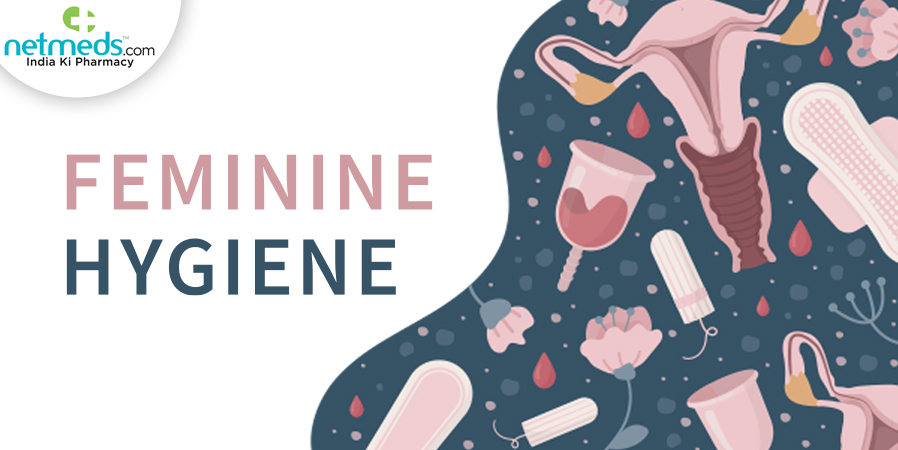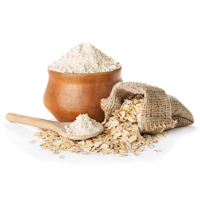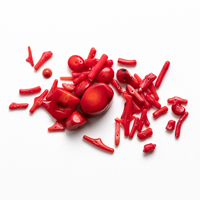Women are always best at personal care and show their expertise in choosing the right skin and hair care essentials. But what about private areas, though? Do women provide their intimate regions with the same amount of care and attention as the rest of their bodies? Yes, the hygiene of intimate areas is not talked about. But just like other body regions, it is essential to take utmost care of one’s intimate areas by maintaining them clean to avert the risk of infections and other health woes.
Most women are unable to choose and decide what is safe and some prefer intimate washes. But is it safe to use? Read this article to know why and how intimate hygiene is so vital for women’s overall well-being.
What Is Intimate Wash?
An intimate wash is a specially designed product for women to clean their vaginal regions. It is also used for treating dryness, itchiness, and irritation of intimate regions. They usually come in liquid form and are used by some women as part of their personal hygiene regimen. In addition, these products support keeping the normal pH of the vagina which is very important in averting bacterial infection.
Also Read: Female Hygiene: 10 Simple And Effective Ways To Maintain Vaginal Health
It’s important to remember that the use of vaginal washes is a personal choice and medical experts often recommend against their regular use.
The intimate region’s skin is more sensitive than the rest of the body, so it needs special attention and care. The pH levels of the vagina and the rest of the body are different. The pH of a healthy vagina is between 3.5 and 4.5. Although the pH of most bathing soaps is higher than 4.5, using a bathing soap could change the pH level of the vagina, resulting in irritation and vaginal infections.
Further, intimate washes promote the formation of Lactobacillus, a type of good bacteria vital for keeping the vagina clean and healthy. It is easily available without a prescription from a doctor in stores and pharmacies, and is also available online.
Points To Consider While Using An Intimate Hygiene Wash
Experts reveal the perfect intimate wash product should be totally soap-free with no irritants and hypoallergenic. Some of the main ingredients to look out for while choosing an intimate wash are lactic acid, glycerine, sodium hydroxide, Cocamidopropyl betadine and water.
And for menopausal women, experts advise using intimate washes to maintain their personal cleanliness and hygiene routine. As they experience hormonal changes that make their vagina more sensitive and drier. Also, there are specially designed intimate washes for menopausal women to keep pH and balance out vaginal flora.
Like any other product, these vaginal washes should be used according to a person’s preference. Experts suggest that only a minimal amount should be taken in hand and used after toilet and showering. Remember not to overdo it.
Pregnant women should opt for intimate washes without strong chemicals, and they should be paraben-free.
Also Read: Different Colours Of Vaginal Discharge: Know What They Denote For Women’s Health
Can I Use An Intimate Wash Every day?
Well, experts suggest that using vaginal wash regularly can hamper the natural balance of bacteria in the vagina and can cause infection or irritation. Also, it can make your skin allergic to it if used regularly. So, you should use it less frequently and there is no specific age at which girls or women can start using vaginal wash. Generally, they are considered safe once a girl attains puberty and becomes more aware and conscious of her personal hygiene.
What Are The Side Effects Of Intimate Wash?
Some women may have certain side effects from using intimate wash. They may be vaginal irritation, itching, dryness, or an allergic reaction to one or more of the substances like harsh chemicals or fragrances in the product. Moreover, frequent use of vaginal washes can alter the natural balance of bacteria in the vagina, leading to infection or inflammation. If you face any adverse symptoms after using feminine wash, just stop using it and seek medical attention if needed.
Conclusion
Well, maintaining good vaginal health can be easily attained via simple routines like gentle cleansing of the external genital area with mild soap and water, using breathable underwear, practising safe sex and living a healthy lifestyle. It is best to consult with your healthcare provider for personalized advice and suggestions regarding your vaginal health.
Frequently Asked Questions
What Are The Side Effects Of Using Feminine Wash?
Feminine washes are marketed for cleaning the intimate area, but overuse or improper use may cause:
Irritation or itching due to fragrances or harsh chemicals.
Allergic reactions in women with sensitive skin.
Disturbance of vaginal pH balance can kill protective bacteria (lactobacilli) and increase the risk of infections like yeast infections or bacterial vaginosis.
Dryness in the vaginal area.
Note: Gynaecologists often recommend plain water or mild, unscented cleansers instead of daily use of chemical washes.
What Are The Benefits Of Using Feminine Wash?
If used occasionally and with mild, pH-balanced formulas, feminine washes may:
Help reduce odour caused by sweat or discharge.
Provide a feeling of freshness and cleanliness.
Support pH balance, if specifically designed for it.
What Is A Feminine Hygiene Wash?
A feminine hygiene wash is a liquid cleansing product marketed for cleaning the vulva (external genital area). It is usually:
pH-balanced (slightly acidic, around pH 3.5–4.5).
Sometimes contains soothing ingredients like aloe vera or lactic acid.
Designed to be more gentle than regular soaps, but not always necessary for daily use.
What Are The Diseases Caused By Poor Menstrual Hygiene?
Poor menstrual hygiene can lead to:
Urinary tract infections (UTIs)
Reproductive tract infections (RTIs)
Bacterial vaginosis
Yeast infections
In severe cases, toxic shock syndrome (TSS), rare but serious, is often linked to improper tampon use.
What Are The Side Effects Of Wearing Cloth During Periods?
If cloth is used without proper hygiene, it may cause:
Infections like UTIs, vaginal infections
Skin rashes and irritation due to dampness and friction.
Bad odour if the cloth is not washed and dried properly.
Note: If clean, soft cotton cloth is washed well with soap, dried in sunlight, and stored hygienically, it is safe to use.
(This article is reviewed by Kalyani Krishna, Chief Content Editor)
Author Profile:
M Sowmya Binu:
With over 15 years of expertise and a Postgraduate degree in Nutrition, M Sowmya Binu is a seasoned professional in the field of nutrition. Specializing in tailoring personalized diet plans, she underscores the significance of a balanced approach to health, emphasizing the integration of medication with dietary intake for holistic wellness. Passionate about equipping individuals with knowledge to make informed decisions, Sowmya adeptly develops insightful content encompassing a wide array of topics including food, nutrition, supplements, and overall health.
References
Role of female intimate hygiene in vulvovaginal health: Global hygiene practices and product usage
Ying Chen 1,✉, Elizabeth Bruning 1, Joseph Rubino 1, Scott E Eder
https://pmc.ncbi.nlm.nih.gov/articles/PMC7789027/
“It was always just a sacrifice I was willing to make”: Understanding Women's use of vaginal cleansing products in spite of adverse health effects
Amanda Jenkins, Kieran C. O'Doherty
https://www.sciencedirect.com/science/article/pii/S2667321522000956



 Previous
Previous






